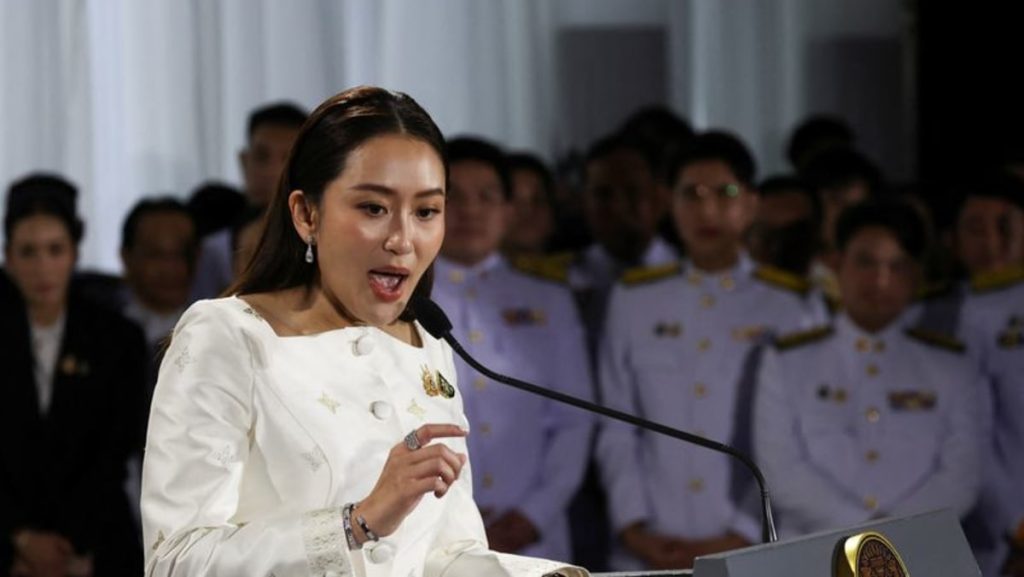Thailand’s new Cabinet, led by Prime Minister Paetongtarn Shinawatra, is set to be submitted for royal endorsement this week, with the government expected to be in place by mid-September. The Cabinet is anticipated to include 11 new ministers and deputy ministers, with the current finance and foreign ministers likely retaining their positions. The new government is expected to have slightly more parliamentary seats than its predecessor, according to Sorawong Thienthong, Secretary General of the ruling Pheu Thai Party, who declined to comment on the list of Cabinet members.
Paetongtarn, at 38 years old, is Thailand’s youngest premier and the second woman to hold the position, following in the footsteps of her father, ex-premier Thaksin Shinawatra. Thaksin remains a significant figure behind the scenes of the Pheu Thai Party. The party quickly rallied behind Paetongtarn after her predecessor, Srettha Thavisin, was removed from office by a court order less than a month ago, demonstrating solidarity and support for her leadership.
In a significant change, the new government has dropped the military-aligned Palang Pracharat party and instead included its long-time adversary, the Democrat Party, in the coalition. This shift marks a departure from the previous administration’s alignment and reflects the evolving dynamics within Thailand’s political landscape. The inclusion of the Democrat Party could potentially bring a different perspective and approach to governance, as they have historically held opposing views to the Pheu Thai Party.
The selection of the new Cabinet members is a critical aspect of the government formation process, as it determines the leadership and direction of key ministries. While the finance and foreign ministers are expected to remain, the addition of new faces in other ministerial positions could signal a fresh start and a focus on addressing pressing issues facing the country. As Thailand grapples with economic challenges and ongoing political tensions, the composition of the new Cabinet will play a crucial role in shaping policies and initiatives moving forward.
As Thailand navigates a complex political landscape, characterized by longstanding power struggles and shifting alliances, the formation of the new government marks a significant moment in the country’s political trajectory. The inclusion of the Democrat Party in the coalition and the appointment of Paetongtarn Shinawatra as prime minister underscore the evolving dynamics within Thai politics and the need for inclusivity and collaboration in governance. The upcoming royal endorsement of the new Cabinet will signal the official start of the government’s term, setting the stage for addressing the challenges and opportunities that lie ahead.


